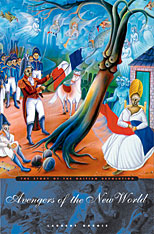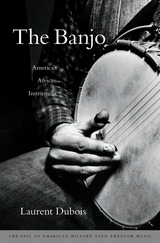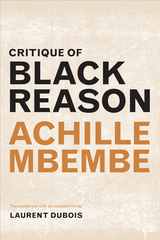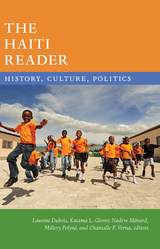
The first and only successful slave revolution in the Americas began in 1791 when thousands of brutally exploited slaves rose up against their masters on Saint-Domingue, the most profitable colony in the eighteenth-century Atlantic world. Within a few years, the slave insurgents forced the French administrators of the colony to emancipate them, a decision ratified by revolutionary Paris in 1794. This victory was a stunning challenge to the order of master/slave relations throughout the Americas, including the southern United States, reinforcing the most fervent hopes of slaves and the worst fears of masters.
But, peace eluded Saint-Domingue as British and Spanish forces attacked the colony. A charismatic ex-slave named Toussaint Louverture came to France’s aid, raising armies of others like himself and defeating the invaders. Ultimately Napoleon, fearing the enormous political power of Toussaint, sent a massive mission to crush him and subjugate the ex-slaves. After many battles, a decisive victory over the French secured the birth of Haiti and the permanent abolition of slavery from the land. The independence of Haiti reshaped the Atlantic world by leading to the French sale of Louisiana to the United States and the expansion of the Cuban sugar economy.
Laurent Dubois weaves the stories of slaves, free people of African descent, wealthy whites, and French administrators into an unforgettable tale of insurrection, war, heroism, and victory. He establishes the Haitian Revolution as a foundational moment in the history of democracy and human rights.

The banjo has been called by many names over its history, but they all refer to the same sound—strings humming over skin—that has eased souls and electrified crowds for centuries. The Banjo invites us to hear that sound afresh in a biography of one of America’s iconic folk instruments. Attuned to a rich heritage spanning continents and cultures, Laurent Dubois traces the banjo from humble origins, revealing how it became one of the great stars of American musical life.
In the seventeenth century, enslaved people in the Caribbean and North America drew on their memories of varied African musical traditions to construct instruments from carved-out gourds covered with animal skin. Providing a much-needed sense of rootedness, solidarity, and consolation, banjo picking became an essential part of black plantation life. White musicians took up the banjo in the nineteenth century, when it became the foundation of the minstrel show and began to be produced industrially on a large scale. Even as this instrument found its way into rural white communities, however, the banjo remained central to African American musical performance.
Twentieth-century musicians incorporated the instrument into styles ranging from ragtime and jazz to Dixieland, bluegrass, reggae, and pop. Versatile and enduring, the banjo combines rhythm and melody into a single unmistakable sound that resonates with strength and purpose. From the earliest days of American history, the banjo’s sound has allowed folk musicians to create community and joy even while protesting oppression and injustice.



READERS
Browse our collection.
PUBLISHERS
See BiblioVault's publisher services.
STUDENT SERVICES
Files for college accessibility offices.
UChicago Accessibility Resources
home | accessibility | search | about | contact us
BiblioVault ® 2001 - 2024
The University of Chicago Press









